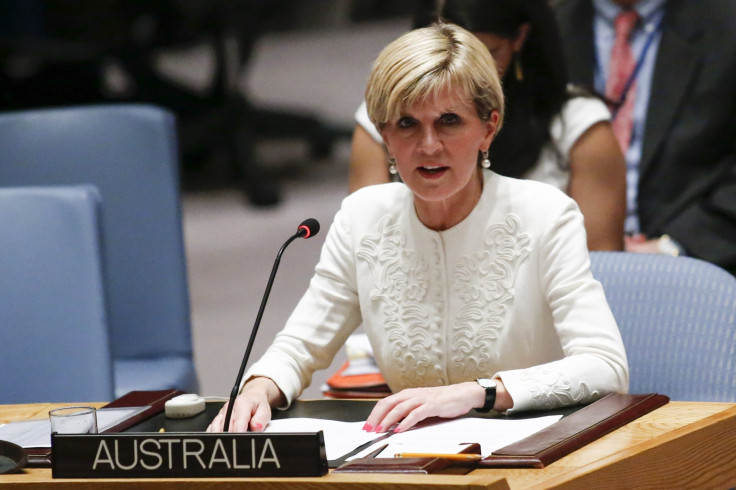Australian ISIS Fighters Have Doubled Over The Past Year, Number Still Increasing, Says Foreign Minister

The number of Australian nationals fighting for the Islamic State group in Iraq and Syria has doubled over the past 12 months, the country’s foreign minister Julie Bishop reportedly said late Sunday. Although the exact number of foreign nationals fighting for ISIS is not available, some estimates suggest nearly 30,000 people from more than 100 countries have poured into Iraq and Syria to join militant groups.
“We estimate that there are around 120 Australians currently in Iraq and Syria supporting Daesh [ISIS] and other terrorist groups,” Bishop reportedly said. “Our numbers have doubled since last year but I don't expect it to double again by next year.”
In recent months, the Australian government has introduced tough laws to stem the flow of fighters to Iraq and Syria, and has conducted several counterterrorism raids. Most recently, in July, Adam Brookman -- an Australian nurse who worked as a medic for ISIS in Syria -- was arrested by the Australian federal police from Sydney International Airport.
“We are having some success in interrupting the flow of foreign terrorist fighters, but I wouldn't say we have yet turned the tide,” Bishop reportedly said. “So the numbers are still increasing but we hope to stem the trajectory through our efforts.”
Bishop’s comments come just days after Tina S. Kaidanow, the U.S. State Department’s top counterterrorism official, said that the “trend was still upward” insofar as foreign nationals traveling to fight in Iraq and Syria are concerned. According to the New York Times, ISIS is adding an average of about 1,000 foreign fighters every month.
“We need to do more than just identify and stop foreign terrorist fighters from arriving at their destination; we have to prevent them from getting into those pipelines in the first place,” Kaidanow said.
© Copyright IBTimes 2024. All rights reserved.






















